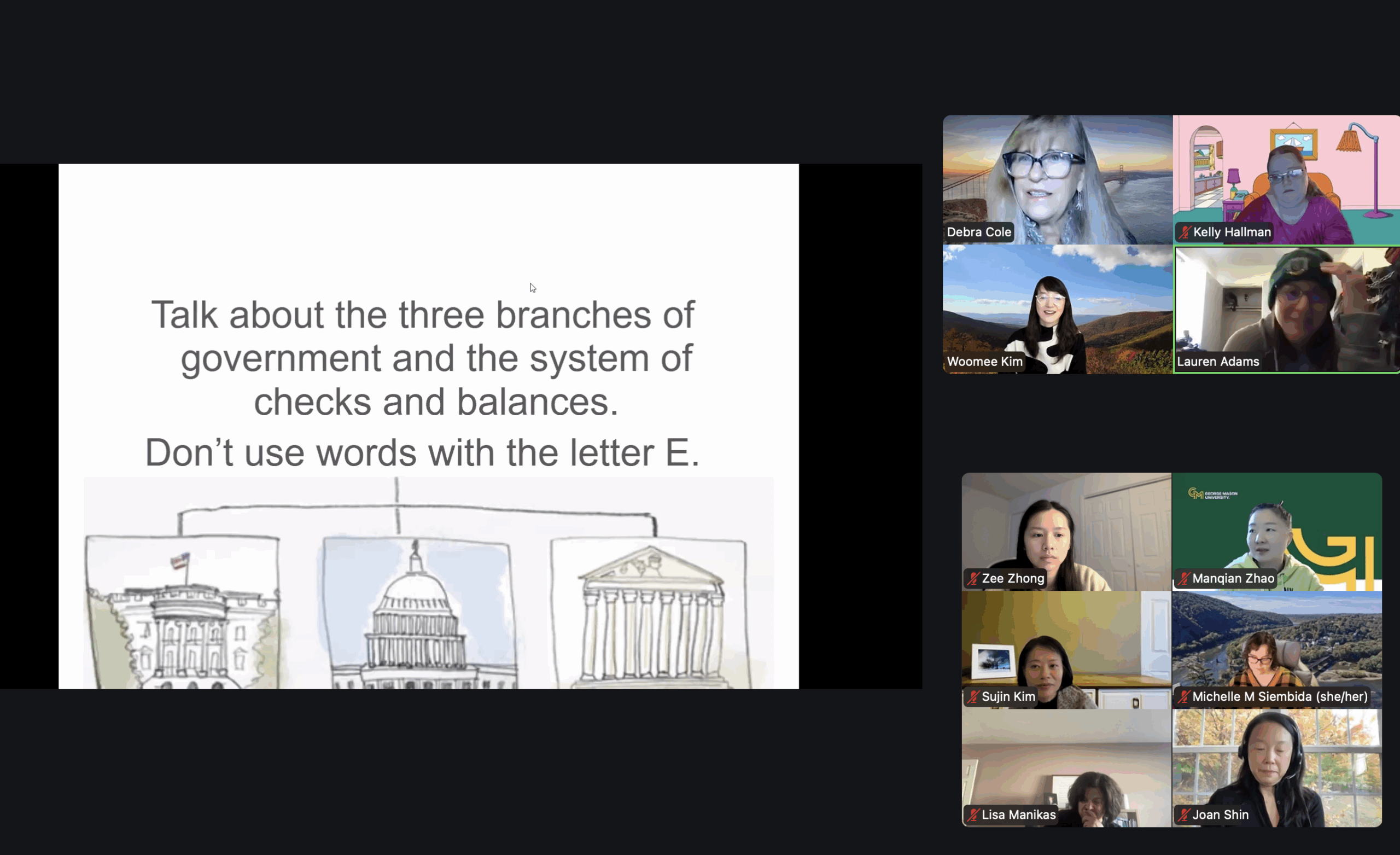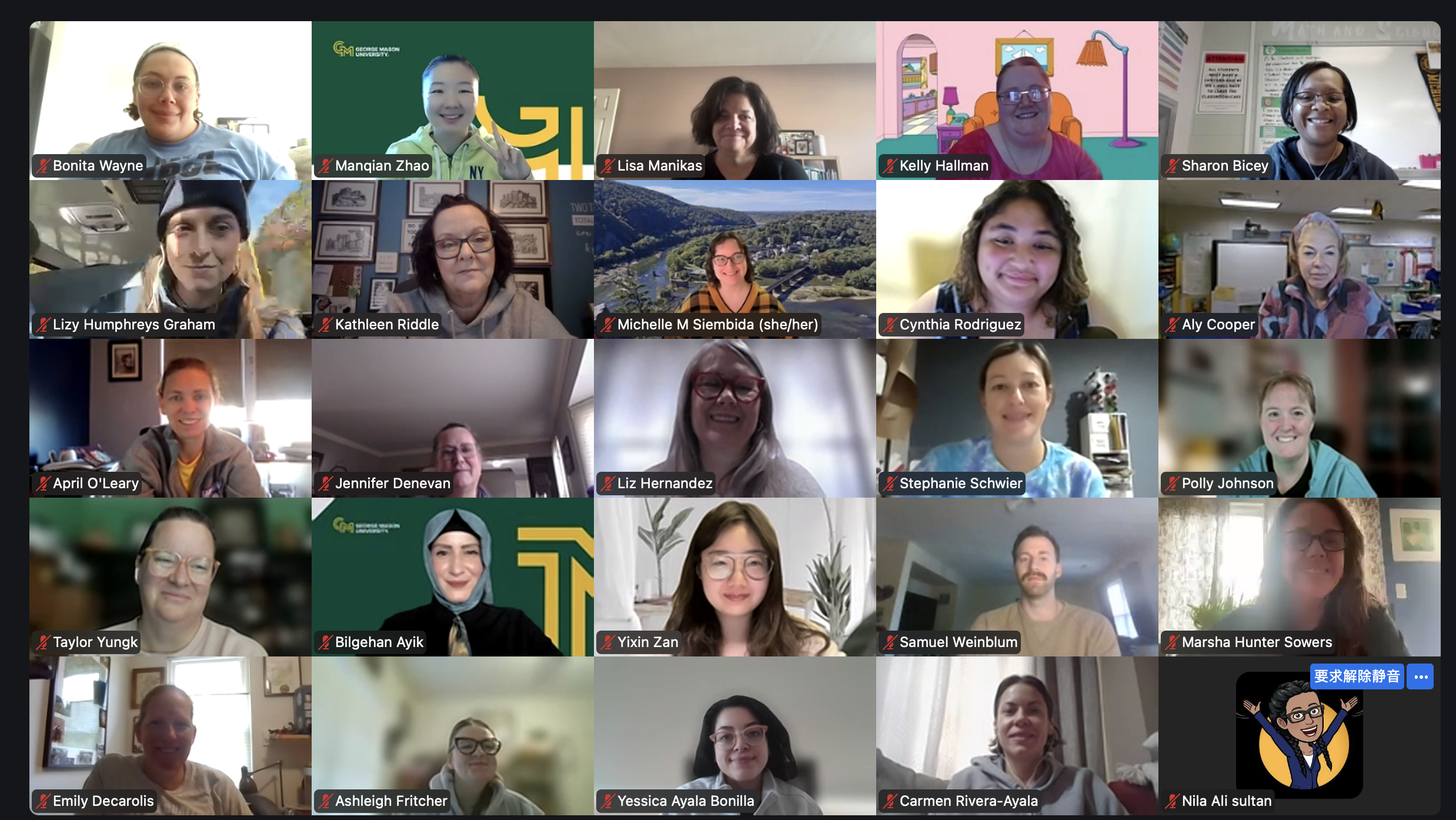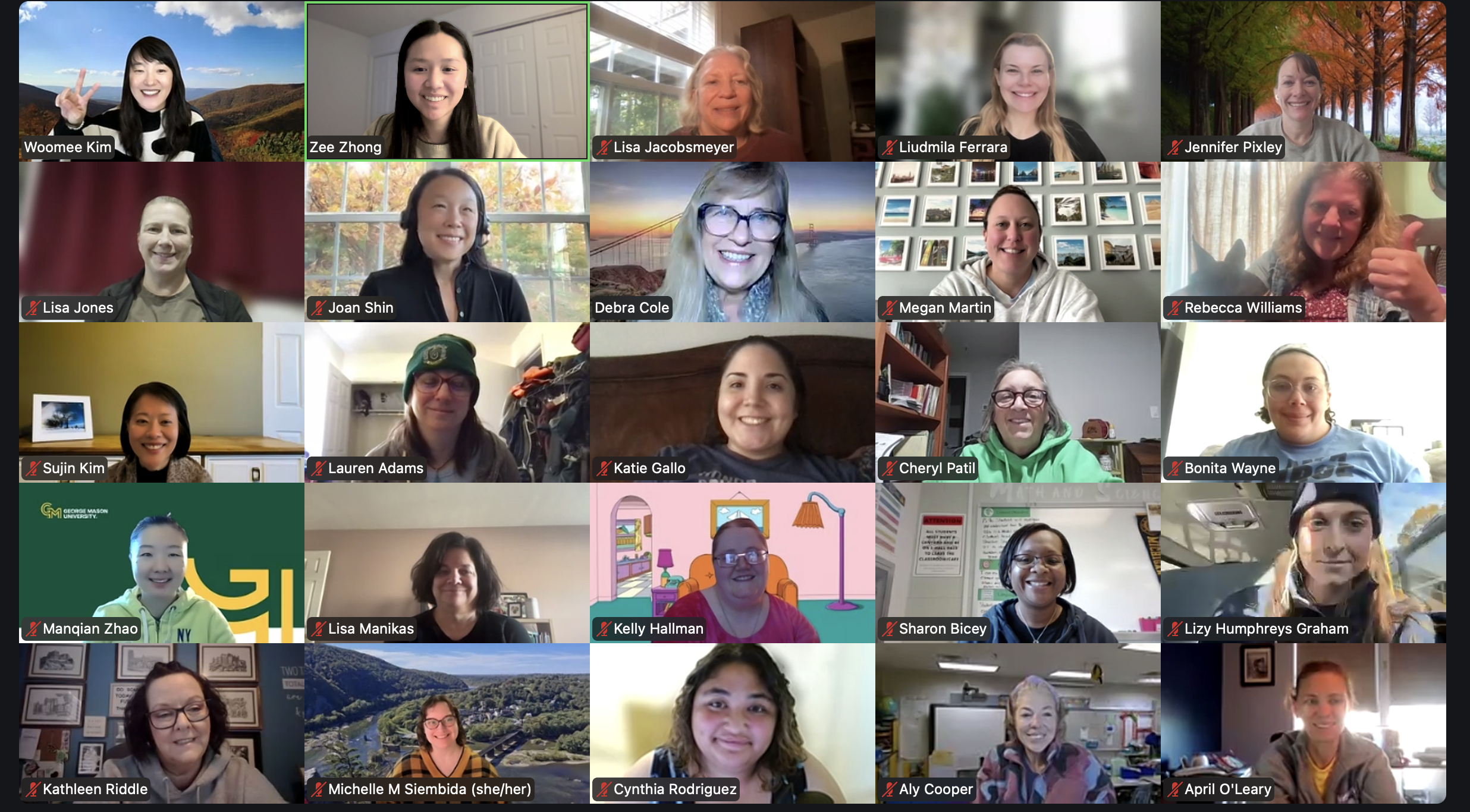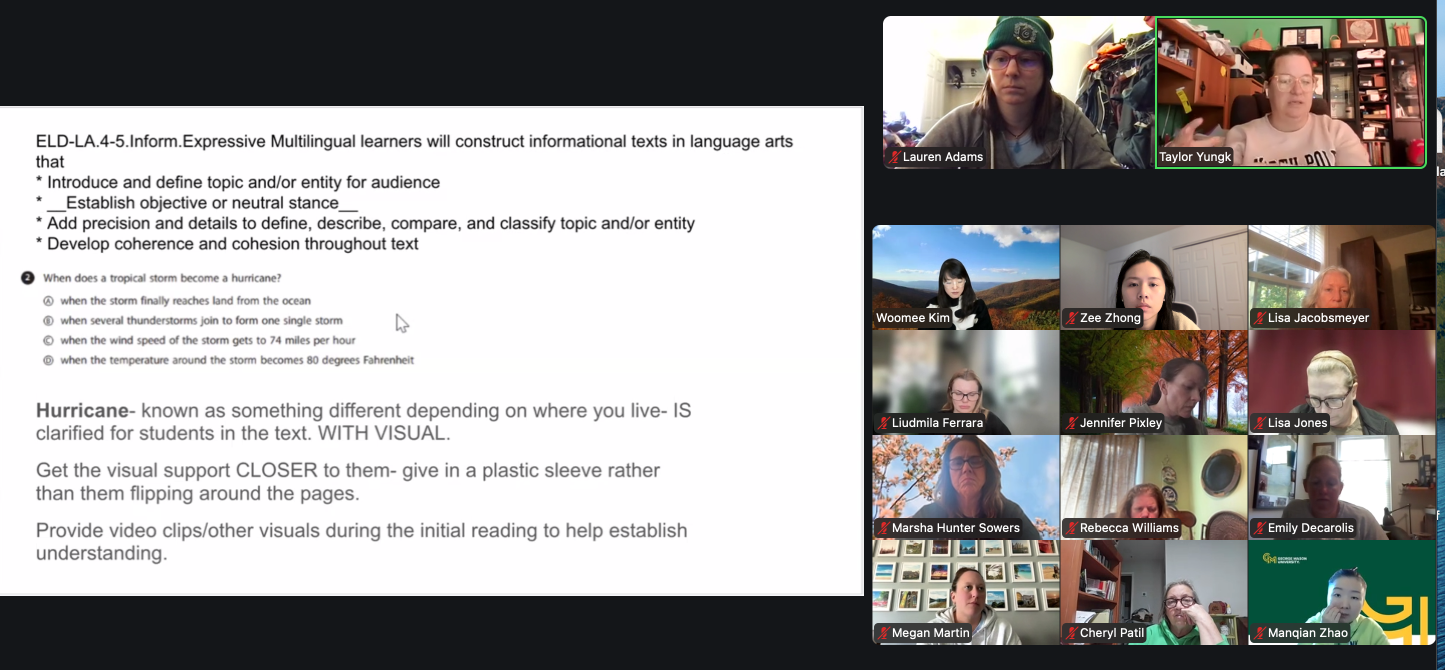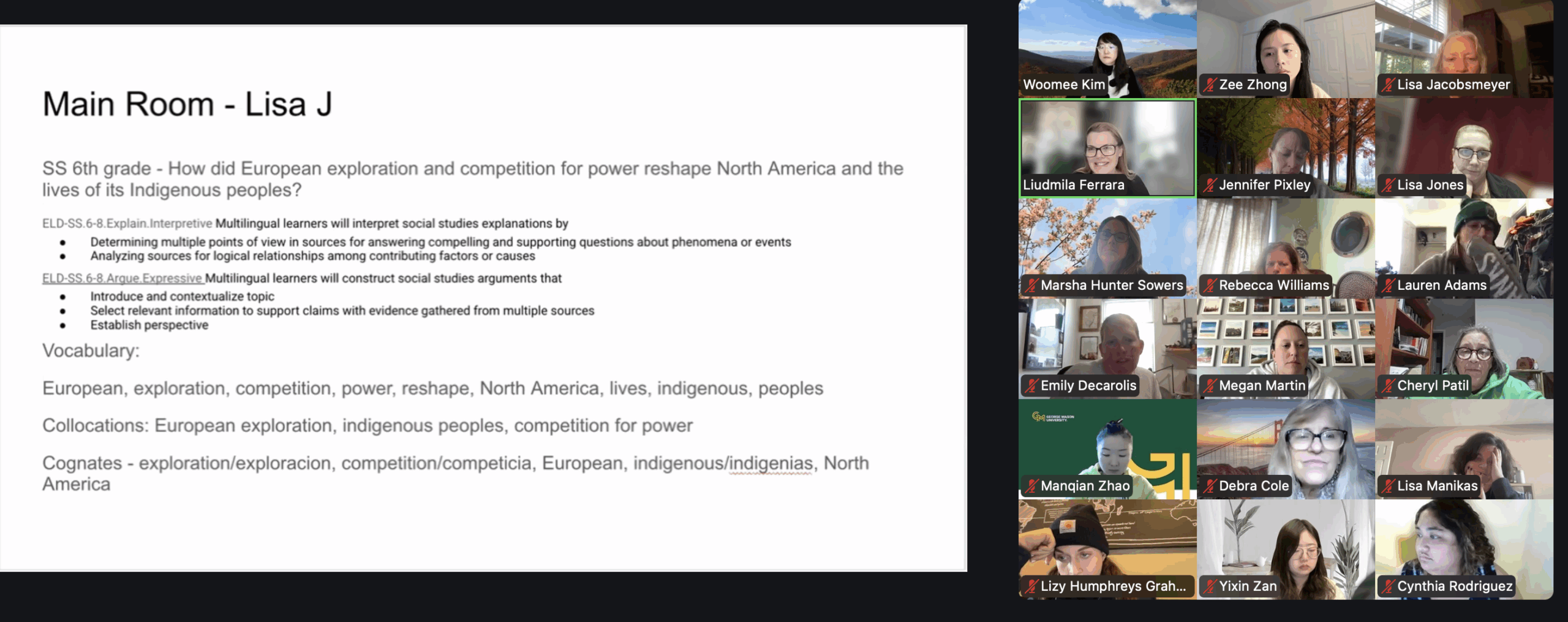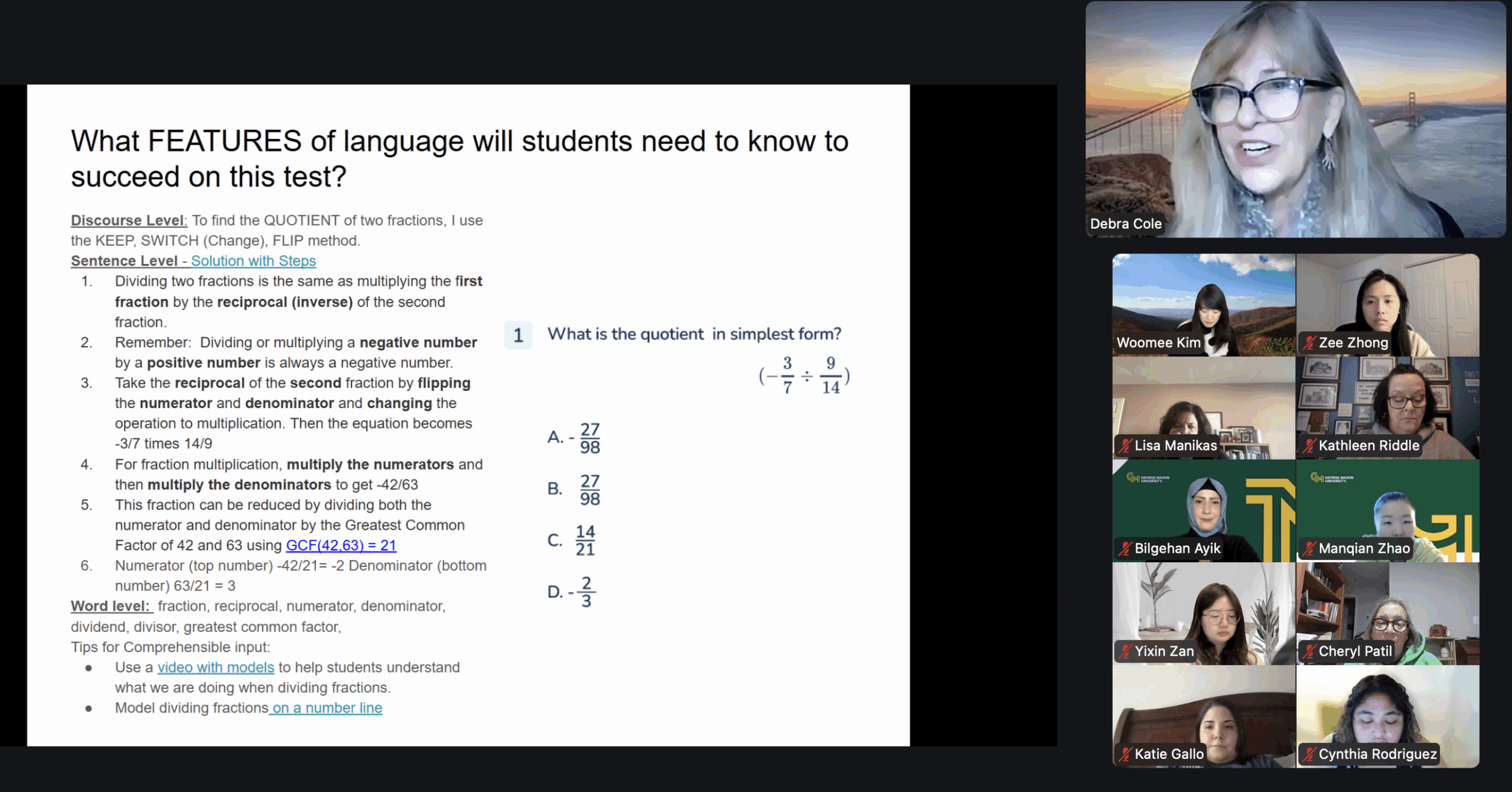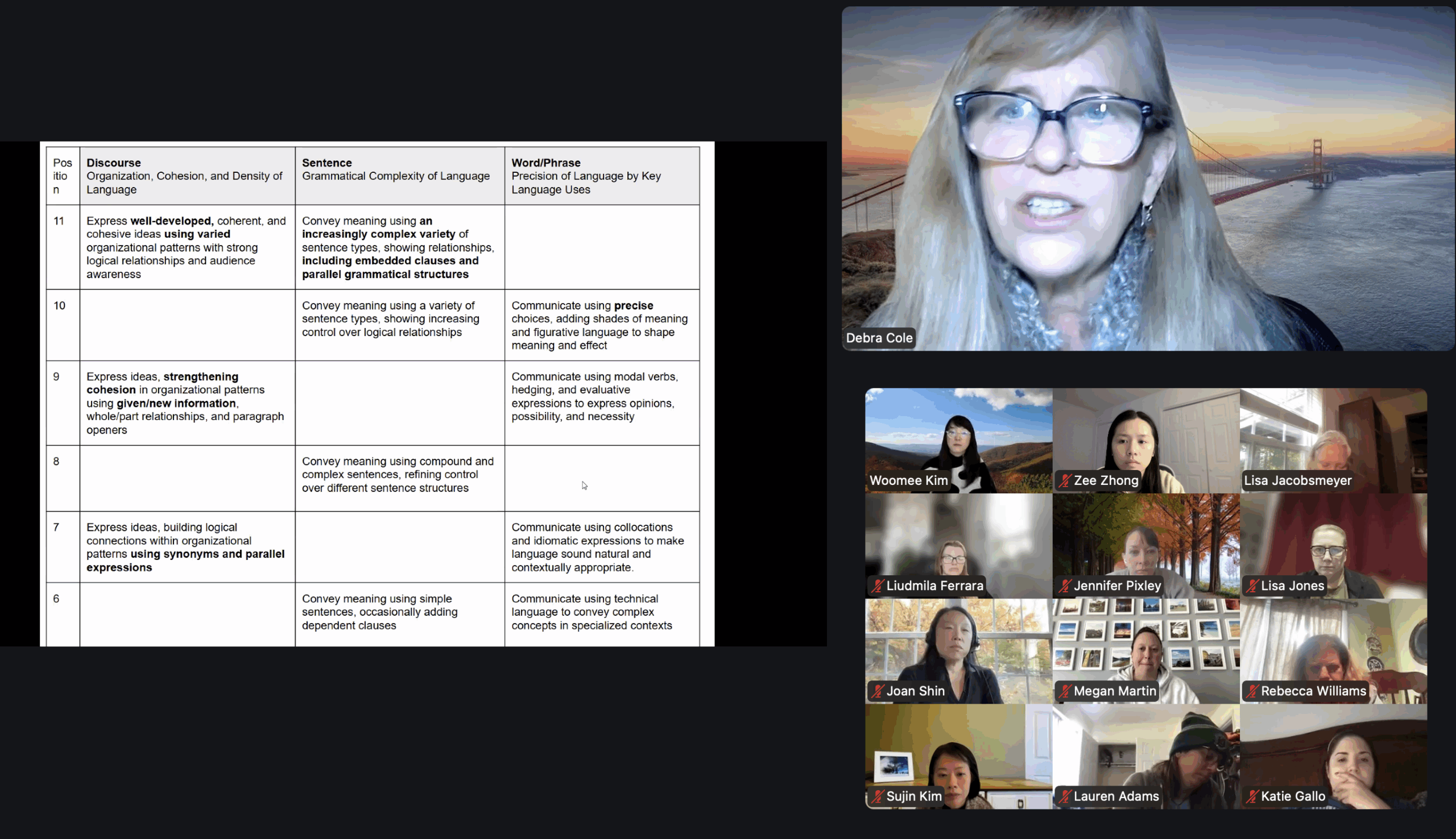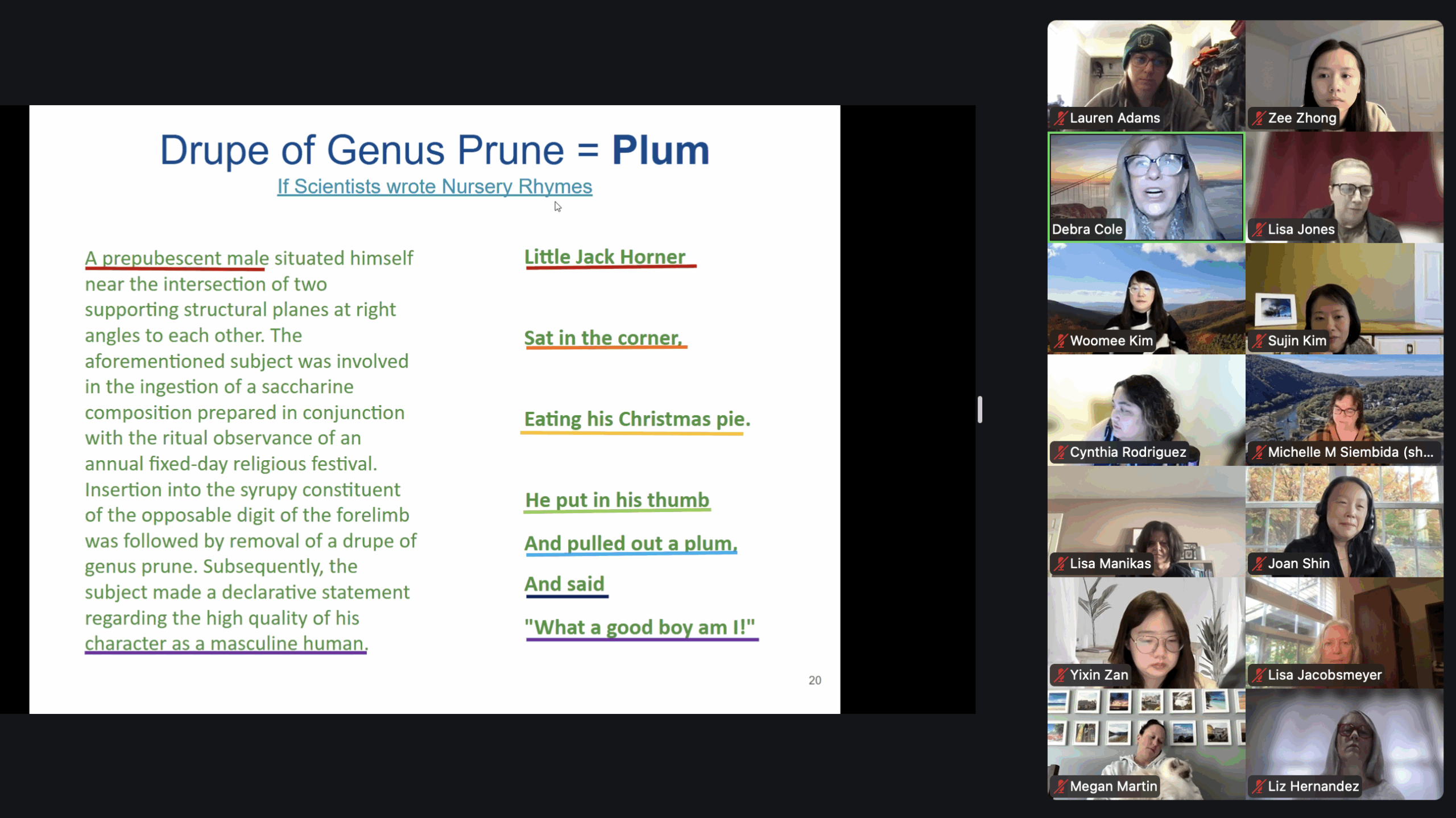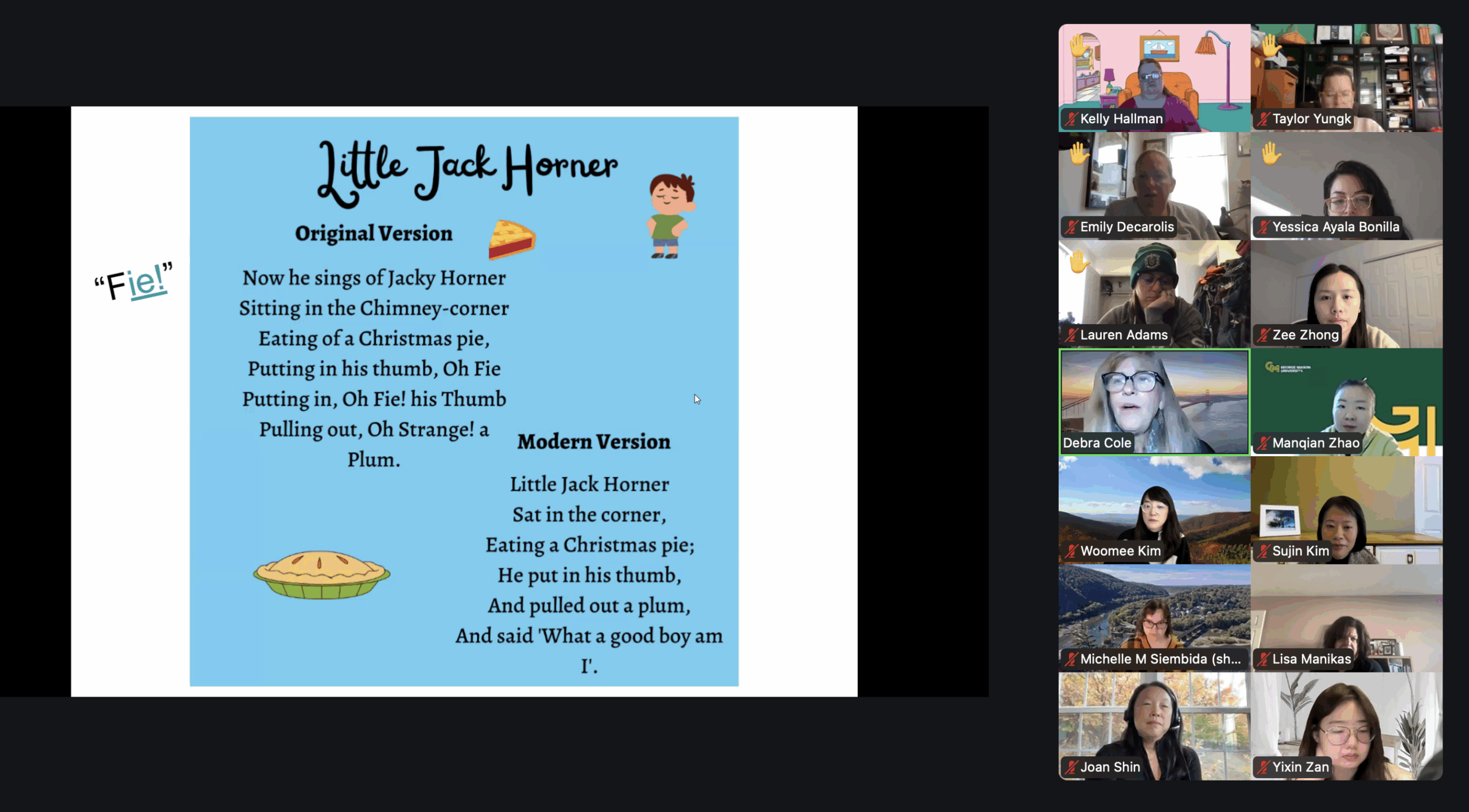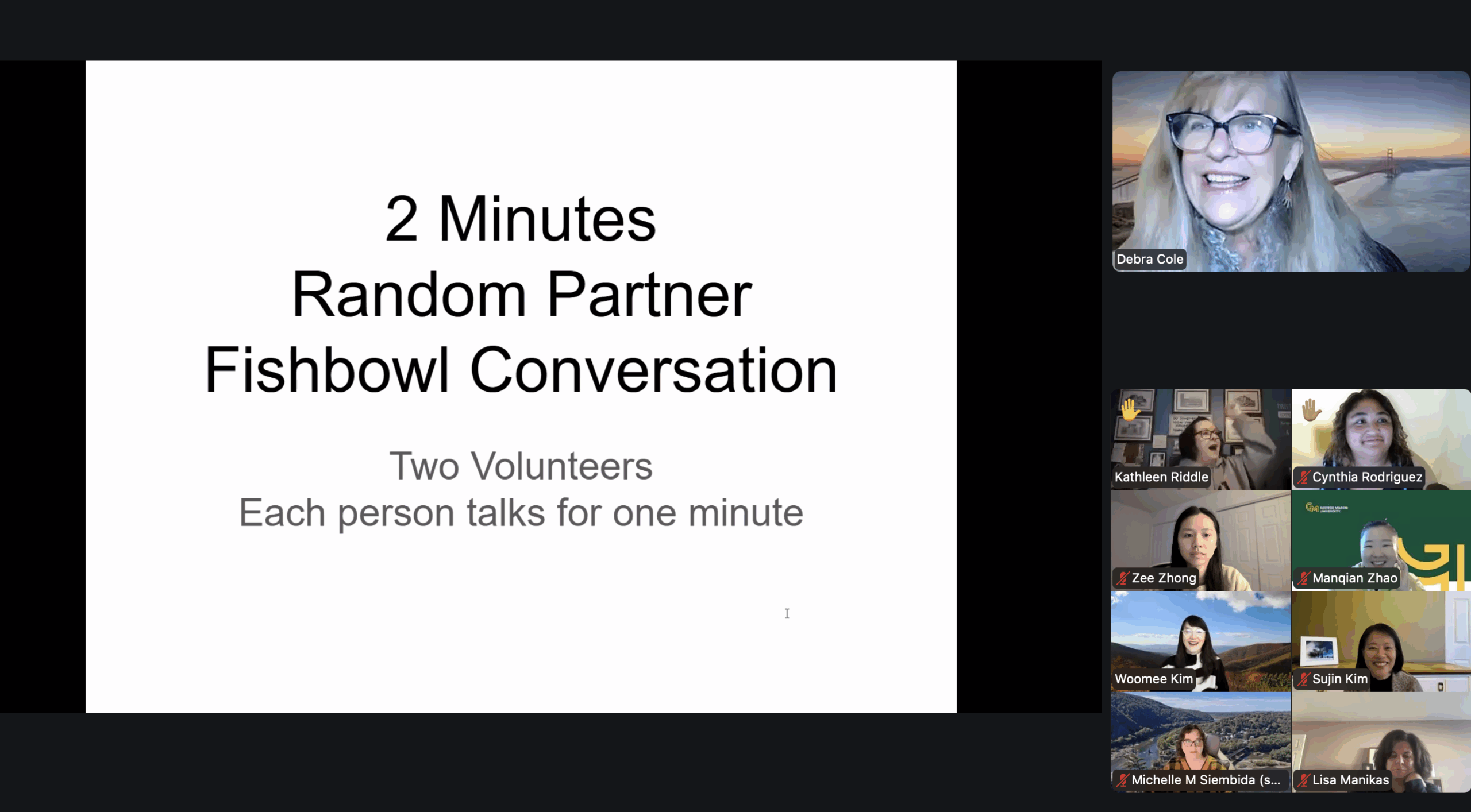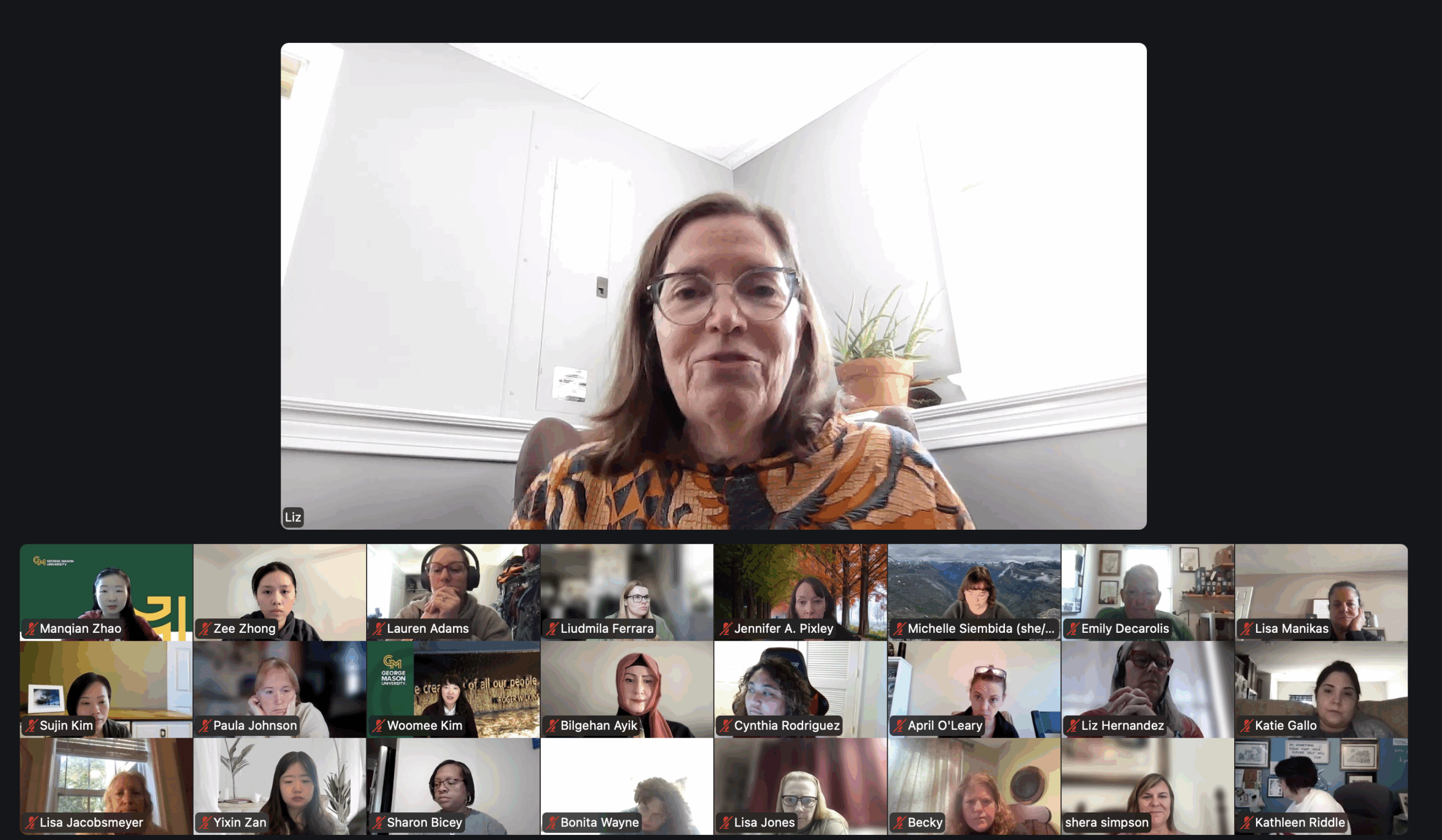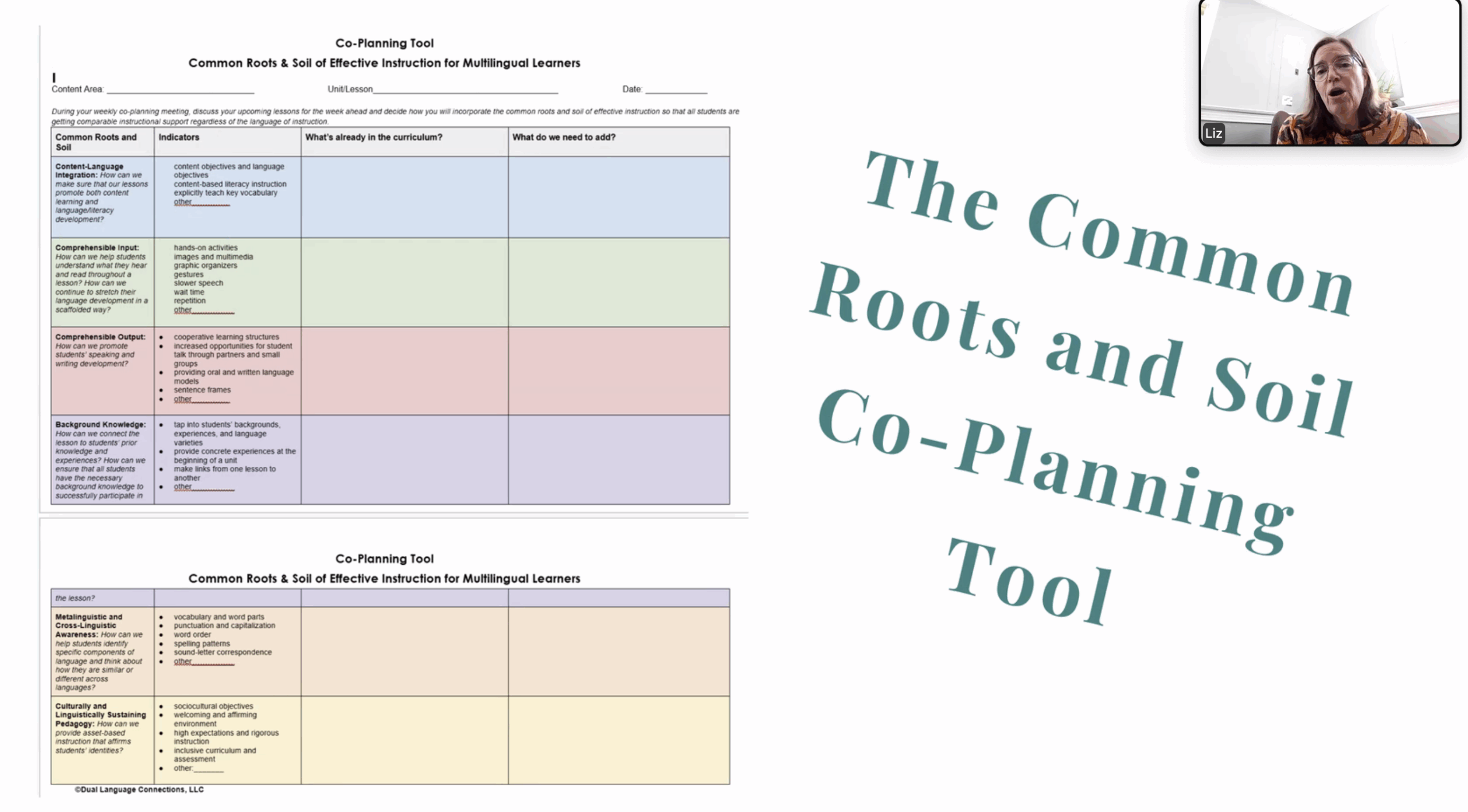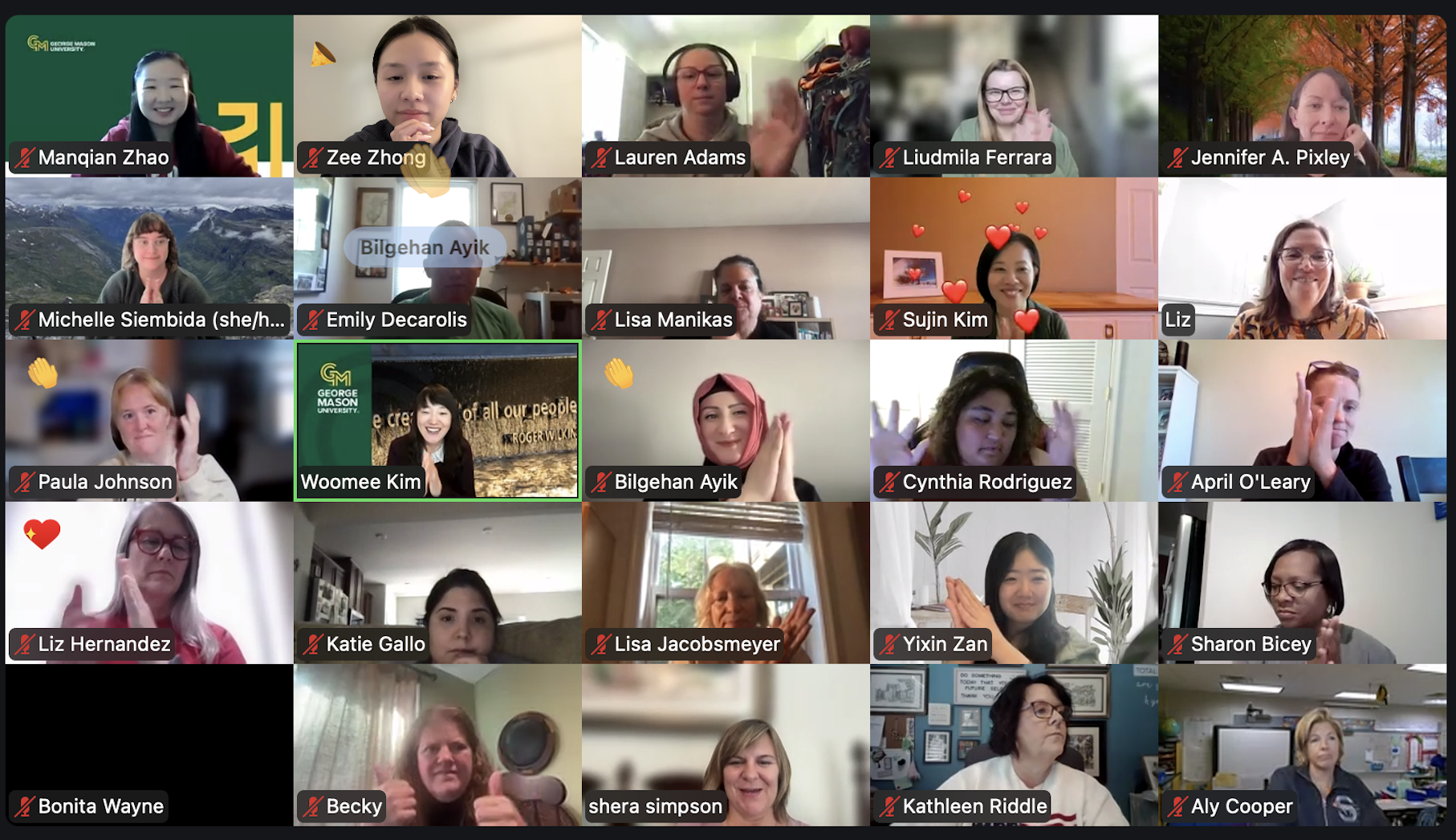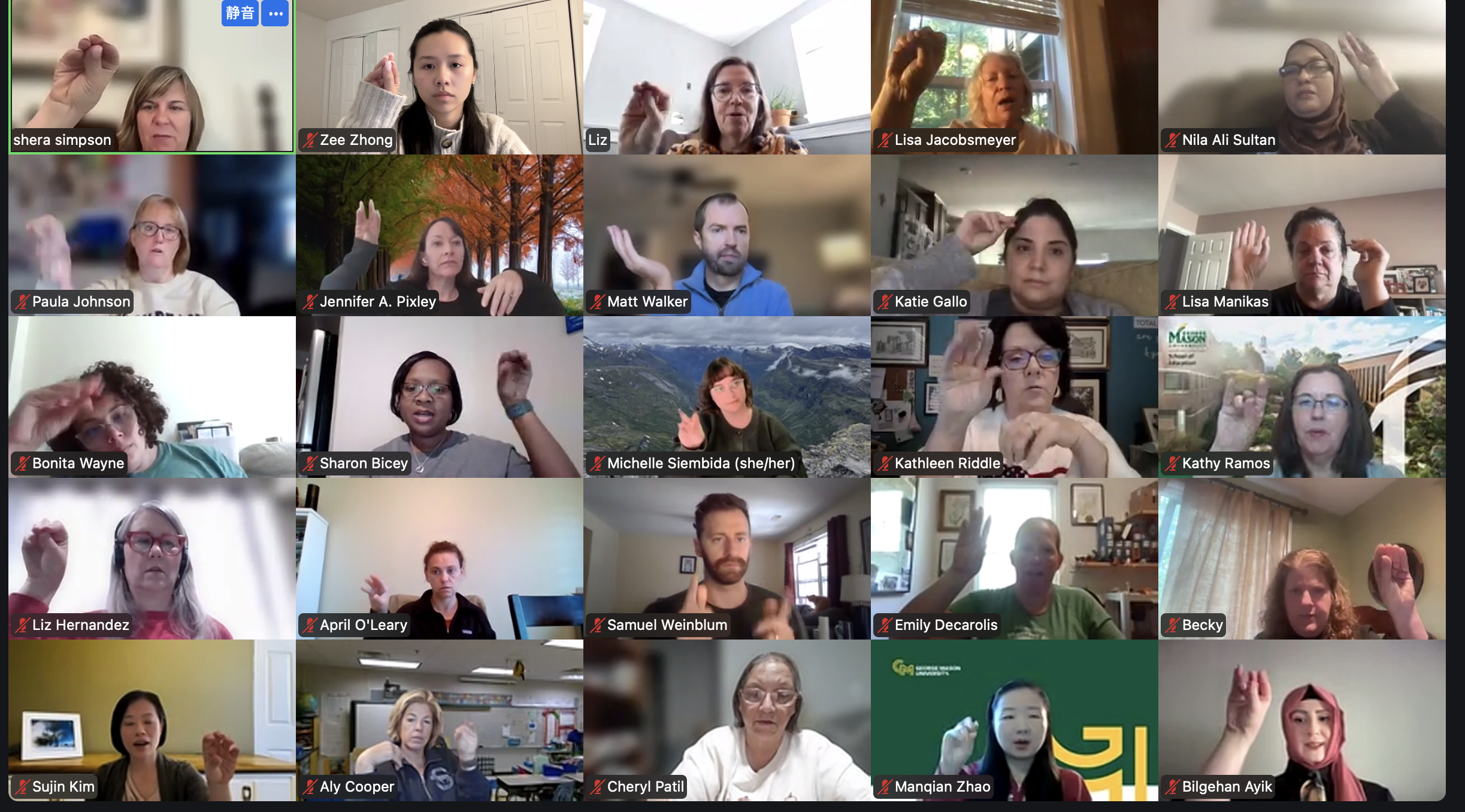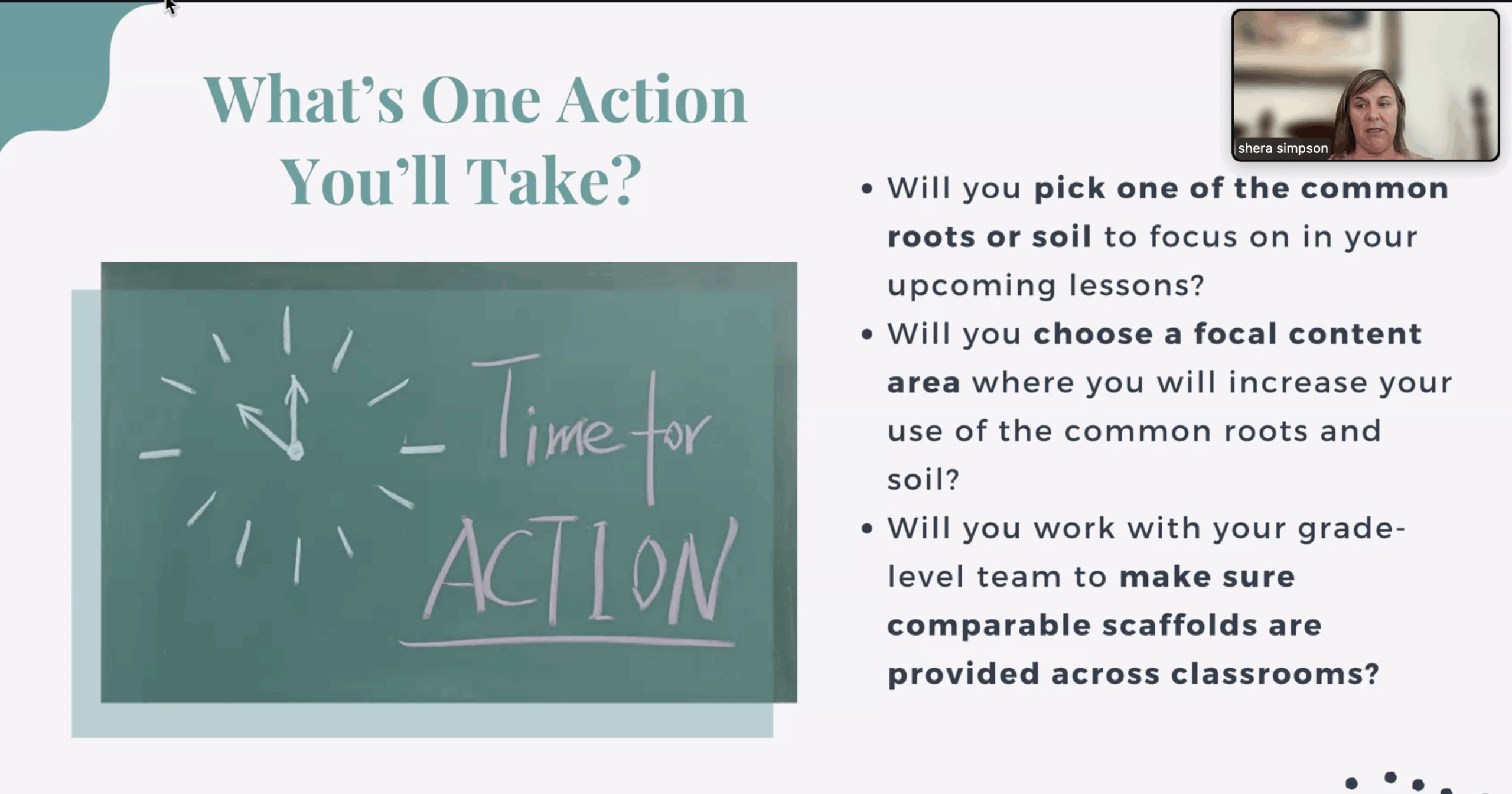ACE-STEM Saturday Workshop 6
On November 1st, 2025, ACE-STEM hosted the sixth Saturday Workshop for Cohort 2 teachers, which was the last Workshop for the Fall 2025 semester. The informative workshop, titled “Catching the Language-Content Connection: Embed the CAN-DO Cycle using the World-Class Instructional Design and Assessment (WIDA)’s 2025 Language Charts for Instruction and Assessment in Content Classrooms,” was led by Dr. Debra Cole, a longtime language teacher, experienced program director, instructional specialist, school administrator, and research expert in the education of multilingual learners.
Dr. Cole started the workshop by inviting Cohort 2 teachers to get into the mindset of the multilingual learner, with exercises such as discussing the weather without using the letter “N.” Dr. Cole then led Cohort 2 teachers through the “languages of school,” utilizing the WIDA English proficiency standards and demonstrating how teachers can support their multilingual learners through the framework provided by the WIDA English Language Proficiency Standards. The five languages of school included:
- ELD-SI: Language for Social & Instructional Purposes
- ELD-LA: Language for English Language Arts
- ELD-MA: Language for Mathematics
- ELC-SC: Language for Science
- ELD-SS: Language for Social Studies
Cohort 2 teachers also had the chance to bring in their own assessments and, using the CAN-DO WIDA descriptors chart, determine what features of language students would need to complete test questions. Through this activity and other insightful questions posed by Dr. Cole, Cohort 2 teachers learned how to design lessons and assessments that were more comprehensible for multilingual learners and aligned with WIDA standards.
ACE-STEM Saturday Workshop 5
On October 4th, 2025, the ACE-STEM community came together virtually for the fifth Saturday workshop for our Cohort 2 teachers. The workshop, titled “Strategies for Success:The Common Roots and Soil of Effective Instruction for Multilingual Learners,” featured an engaging keynote led by Dr. Liz Howard and Ms. Shera Simpson, who brought a powerful lens to supporting multilingual learners through language-integrated content area education.
Through this workshop, participants learned about what Dr. Howard and Ms. Simpson call the “common roots and soil” of various methods of instruction for multilingual learners. This approach demonstrated that many of the instructional strategies for multilingual learned share commons “roots” and “soil”- things such as content language integration, background knowledge, and culturally and linguistically sustaining pedagogy. Participants were asked to reflect on their own teaching and share how they can connect these “roots” and “soil” to their own teaching practices. Participants were also shown resources created by the presenters for teachers, such as a co-planning tool to ensure use of scaffolds in both English and the partner language and a stages of language acquisition tool to help differentiate instruction across the various levels of language proficiency. For more information on the work of Dr. Howard and Ms. Simpson, check out their website: https://www.tandemteachers.com/.
Participants were able to actively engage with each other throughout the workshop, which included an interactive round robin activity that saw teachers sharing key resources with each other and discussing practices and strategies that they can use in the classroom. They also engaged in their own version of Total Physical Response (TPR) with the presenters to remember the common “roots” and “soil” of language learning in the classroom.
Participants left the session with new insights, classroom-ready tools, and a strengthened sense of community around the shared goal of growing their own “gardens” in their multilingual classrooms. The collaborative spirit and expert guidance of Dr. Howard and Ms. Simpson made this workshop a valuable and inspiring experience for our Cohort 2 teachers.
ACE-STEM Saturday Workshop 4
On March 15, 2025, the ACE-STEM community gathered virtually for a transformative workshop led by Dr. Lorena Llosa, a Professor of Education and Vice Dean for Academic Affairs in New York University’s Steinhardt School of Culture, Education, and Human Development. The workshop, titled “Supporting Multilingual Learners in the Science Classroom,” delved into the innovative strategies that educators can employ to enhance science learning and language and literacy development with multilingual learners (MLs).
Dr. Llosa shared her insights on how MLs can be supported through the Science and Integrated Language (SAIL) curriculum. This approach uses language to do science and invites the use of all linguistic and cultural resources available to MLs, which fosters deeper engagement and understanding of scientific phenomena. The fifth-grade science SAIL curricular units are freely available at https://www.nyusail.org/curriculum. The workshop also underscored the need for formative assessment practices that extend beyond conventional approaches. These formative assessments include multimodal tasks that enable students to demonstrate their scientific knowledge in disciplinary ways that align with the work of real-world scientists!
Throughout the morning, participants were actively engaged in activities that modeled science-language integrated instruction. These activities anchored learning in real-world phenomena such as shooting stars in night skies and community waste management. Exploring these phenomena in science learning sparks the development of investigative questions and scientific explanations. This hands-on approach helped participants see the direct application of these methods in diverse classroom settings. The workshop also featured breakout sessions where educators shared their experiences and discussed strategies for implementing these practices in their teaching.
At the end of the session, teachers voiced a commitment to adjust their teaching methods in response to the cultural and linguistic diversity present in their classrooms. The participants’ enthusiasm and positive comments demonstrated the workshop’s effectiveness and highlighted the continuing necessity for professional growth in this critical area of education.
ACE-STEM Saturday Workshop 3
On February 15th from 9 am to 12 pm, ACE-STEM hosted a workshop titled “Following La Corriente of Translanguaging: Shifts in Perspective and Practice for Emergent Bilingual Students,” led by the esteemed Dr, Kate Seltzer, PhD, from Rowan University. This enlightening session delved deeply into the practice and theory of translanguaging and shed light on its potential to enrich educational experiences for emergent bilinguals.
Dr. Seltzer opened the workshop by challenging common myths about bilingual students, such as beliefs that they do not want to learn English or are illiterate in their home languages. These discussions set the stage for a comprehensive exploration of how translanguaging can shift educational paradigms toward inclusive and effective practices. Practicing and preservice teachers engaged in vibrant discussions, reflecting on their own experiences and beliefs about language use in classrooms. They explored translanguaging as not just a method but a holistic approach that acknowledges the fluid, dynamic nature of language. Dr. Seltzer emphasized the three crucial strands of translanguaging pedagogy: Stance, Design, and Shifts, which support teachers in implementing these practices thoughtfully and effectively.
Key examples from real classrooms brought the theory to life:
- In science classes, students discussed plant growth in their home languages before recording findings in English, illustrating how translanguaging can aid understanding of complex concepts.
- Math lessons featured bilingual problem-solving exercises, with resources provided in both Spanish and English to enhance comprehension and engagement.
- Social studies units on immigration encouraged students to conduct interviews in their home languages, deepening their connection to the curriculum through personal and community narratives.
The workshop culminated in breakout sessions where participants applied what they learned to their educational contexts, brainstorming ways to reduce barriers and create new affordances for bilingual students. These discussions underscored the transformative potential of translanguaging to not only support academic success but also foster richer, more inclusive educational environments. As we reflect on this impactful session, we are reminded of the power of education to change lives when learners’ full linguistic and cultural identities are embraced.
ACE-STEM Saturday Workshop 2
On Saturday, November 9, ACE-STEM hosted its second Virtual Saturday Workshop, “Tips and Tools to Engage ALL Learners using Generative AI.” Held online from 9:00 AM to 12:00 PM, the workshop featured insightful presentations from three distinguished speakers from George Mason University: Dr. Joan Kang Shin, Dr. Anya Evmenova, and Dr. Jered Borup. The workshop was specifically designed to equip educators with practical tools and strategies to effectively integrate generative AI in the classroom to engage all learners, particularly multilingual learners (MLs).
The session began with a lively discussion exploring how AI technologies, like ChatGPT, can act as both supportive tools and potential challenges in teaching contexts. Participants discussed the benefits generative AI can bring, including personalized communication practice, language translation, and vocabulary development for MLs. However, they also highlighted some limitations, such as accuracy issues, cheating and plagiarism issues, and the need for caution regarding bias and stereotypes.
Each speaker provided hands-on guidance for using AI to support the Universal Design for Learning framework, focusing on ways that teachers can provide multiple means of engagement, representation, and expression for learners.
Teachers were introduced to innovative tools like DALL-E, Copilot, Brisk, and MagicSchool, which offer resources for image generation, vocabulary and grammar practice, dialogue creation, and adaptive reading materials. Throughout the event, teachers engaged in breakout activities, experimenting with AI tools in real-time. These collaborative exercises allowed participants to role-play with ChatGPT and explore how AI can assist in developing lesson plans and project-based learning experiences.
The workshop concluded with a reflective discussion on how generative AI tools could transform language learning by supporting learners’ diverse needs and identities, encouraging teachers to continue exploring these emerging technologies in their teaching practices. This engaging workshop provided valuable insights and practical knowledge, empowering educators to harness the potential of AI in creating inclusive and supportive learning environments for all learners.
ACE-STEM Saturday Workshop 1
On Saturday, September 28th, the first ACE-STEM Saturday Workshop for Cohort 2 teachers was held online via Zoom. The research team was delighted to once again invite Dr. Lisa Dorner, a Professor in the Department of Educational Leadership and Policy Analysis at the University of Missouri-Columbia and Director of the Cambio Center, to facilitate an engaging workshop for our ACE-STEM teachers.
Through her workshop, “Multilingual Family Engagement: Shifting the focus from what families need to how they can lead,” Dr. Dorner explored the complex goals of family engagement in multilingual classrooms and what it means to have culturally sustaining engagement inside and outside the classroom. Dr. Dorner prompted teachers to engage in thought-provoking conversations about how to value family experiences and how to bring those experiences into the class with families as leaders in their students’ development.
After a rich and diverse discussion, teachers then split into groups to brainstorm family-community programs in their own schools and worked together to create action plans to implement culturally sustaining engagement opportunities. Overall, this workshop provided an amazing start for our Cohort 2 teachers and helped to foster a sense of community between our teachers as they create communities within their own schools.

